Few dishes capture the warmth, aroma, and tradition of North African cuisine quite like Moroccan couscous. Known for its fluffy grains, vibrant vegetables, and fragrant spices, this dish is a staple of Moroccan family gatherings and celebrations. Whether served with lamb, chicken, or kept vegetarian, couscous is more than just a meal, it’s a comforting experience steeped in culture.
In this guide, we’ll walk you through the step-by-step process of making authentic Moroccan couscous, from preparing the grains to simmering the aromatic sauce. With a little patience and the right ingredients, you can recreate this timeless classic in your own kitchen.
Table of Contents
Print Recipe
Moroccan Couscous with Vegetables and Protein
Equipment
- Couscoussier or large pot with steamer
- Mixing bowl
- Fork or hands for fluffing
Ingredients
For the Couscous
- 2 cups fine couscous grains
- 4 cups water
- 2 tbsp olive oil or melted butter
- 1 tsp salt
For the Vegetable and Protein Topping
- 2-3 carrots Peeled and sliced.
- 1 zucchini Sliced.
- 1 turnip Cut into chunks.
- ½ cup cooked chickpeas
- 1 onion Chopped.
- 2 tomatoes Grated.
- 1 lb lamb or chicken (optional)
- 2 tbsp olive oil
- 1 tsp turmeric
- 1 tsp cinnamon
- 1 tsp ginger
- 1 pinch saffron threads
- fresh parsley and cilantro Chopped, for garnish.
Instructions
- Place the couscous grains in a large bowl. Sprinkle ½ cup of water over them and gently fluff with your hands. Let sit for 10 minutes.
- Transfer the hydrated couscous to a steamer basket or colander set over a pot of boiling water. Cover and steam for 15-20 minutes.
- Remove the couscous, transfer it to a large bowl, and fluff with a fork. Drizzle with olive oil or melted butter and sprinkle with salt.
- Return the couscous to the steamer and steam for another 10-15 minutes until light and fluffy.
- Heat olive oil in a large pot. Add onions and sauté until translucent.
- If using meat, add it to the pot and season with turmeric, ginger, cinnamon, and saffron. Sauté for 5 minutes.
- Add carrots, turnips, zucchini, and tomatoes. Pour in enough water to cover, season with salt, and bring to a boil.
- Reduce heat and let simmer for 45-60 minutes until the meat and vegetables are tender.
- Stir in cooked chickpeas during the last 10 minutes of cooking.
- Spread the couscous onto a serving dish, forming a mound. Arrange the vegetables and meat on top. Pour the sauce over and garnish with fresh herbs.
Notes
Why You’ll Love Moroccan Couscous
- Rich in Flavor Layered spices, herbs, and slow-cooked vegetables.
- Versatile Works with lamb, chicken, or as a vegetarian main.
- Nutritious Packed with fiber, vitamins, and plant-based protein.
- Meal-Prep Friendly Flavors develop even more the next day.
- A Cultural Experience Brings Moroccan hospitality to your table.
Ingredients for Authentic Moroccan Couscous
For the Couscous Grains:
- 2 cups fine couscous grains
- 4 cups water
- 2 tablespoons olive oil or melted butter
- 1 teaspoon salt
For the Vegetable and Protein Topping:
- 2–3 carrots, peeled and sliced
- 1 zucchini, sliced
- 1 turnip, cut into chunks
- ½ cup chickpeas, cooked
- 1 onion, chopped
- 2 tomatoes, grated
- 1 lb lamb or chicken (optional for a richer dish)
- 2 tablespoons olive oil
- 1 teaspoon each: turmeric, cinnamon, and ginger
- 1 pinch saffron threads
- Fresh parsley and cilantro, chopped
How to Prepare Moroccan Couscous
Step 1: Preparing the Couscous Grains
Rinse the Couscous Place the couscous grains in a large bowl. Sprinkle ½ cup water over the grains and gently fluff with your hands to separate them. Let sit for 10 minutes.
First Steaming Transfer the hydrated couscous to the steamer basket of a couscoussier (traditional Moroccan steamer) or a colander set over boiling water. Cover and steam for 15–20 minutes.
Fluff and Season Remove couscous from the steamer, place it in a large bowl, and break up clumps with a fork or your hands. Drizzle with olive oil or melted butter and sprinkle with salt.
Second Steaming Return the couscous to the steamer and cook for another 10–15 minutes until light and fluffy.
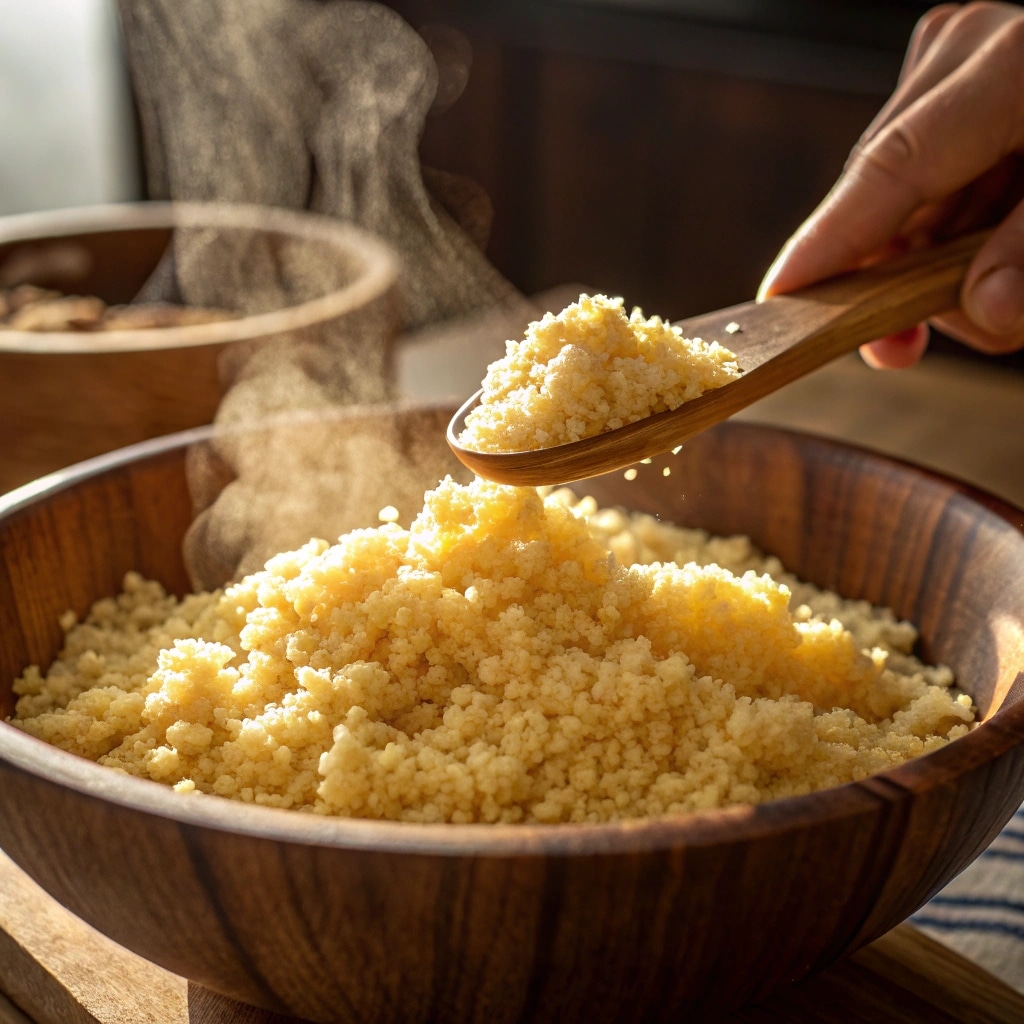
Step 2: Cooking the Vegetables and Protein
Prepare the Base In the bottom of the couscoussier or a large pot, heat olive oil over medium heat. Add chopped onions and sauté until soft and translucent.
Add Meat and Spices If using lamb or chicken, add it now and season with turmeric, cinnamon, ginger, and saffron. Stir for 5 minutes to coat the meat with the spices.
Add Vegetables Add carrots, turnips, zucchini, and grated tomatoes. Pour in enough water to cover all ingredients, season with salt, and bring to a boil.
Simmer Reduce heat and let the mixture simmer for 45 minutes to 1 hour, until the meat and vegetables are tender.
Add Chickpeas Stir in cooked chickpeas during the last 10 minutes of cooking to heat through.
Step 3: Assembling and Serving Moroccan Couscous
Layer the Couscous Spread the steamed couscous onto a large serving platter, forming a gentle mound in the center.
Add the Toppings Arrange the cooked vegetables and meat over the couscous. Ladle some sauce over the top to moisten the grains.
Garnish Sprinkle with fresh parsley and cilantro. Serve immediately.
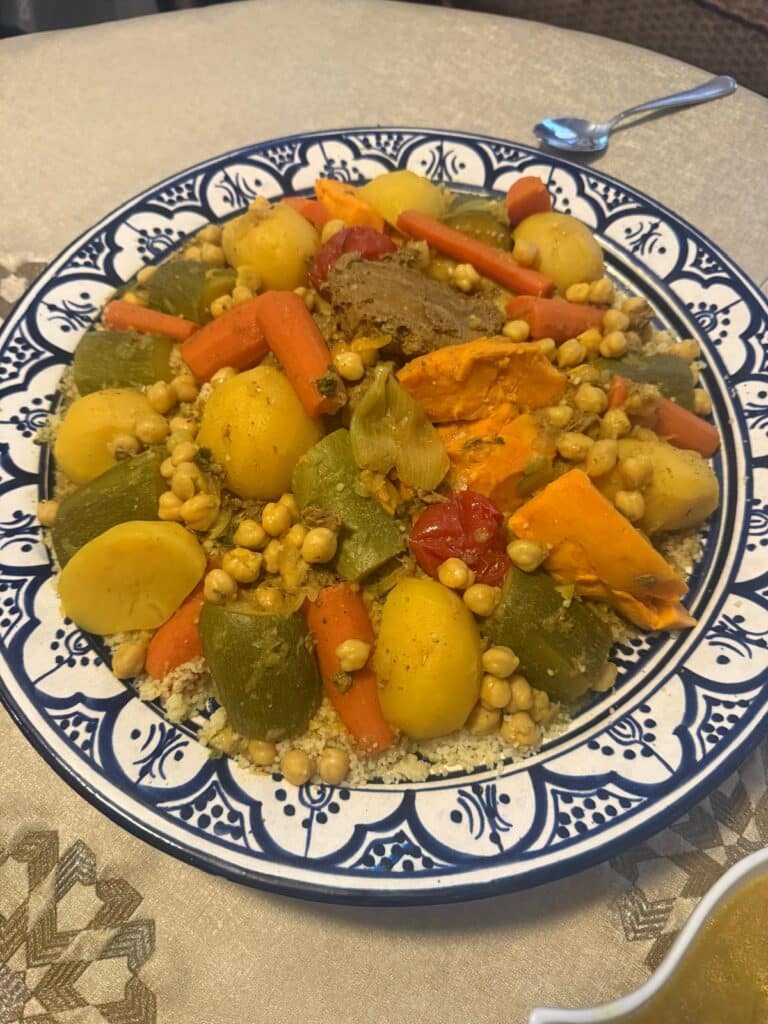
Pro Tips for Perfect Couscous
- Steam Twice for Fluffiness This extra step ensures light, separate grains.
- Balance the Sauce The sauce should be flavorful but not too thick; adjust liquid as needed.
- Don’t Skip Fresh Herbs They add brightness and a fresh aroma to the dish.
- Choose the Right Protein Lamb adds richness, chicken is lighter, and chickpeas make it vegetarian-friendly.
Serving Suggestions
Moroccan couscous pairs beautifully with:
- A side of fresh Moroccan bread for scooping the sauce.
- Harissa or a mild chili paste for extra heat.
- Mint tea to complete the authentic Moroccan experience.

Nutrition Benefits
This dish is not just comforting—it’s nourishing:
| Ingredient | Nutritional Benefit |
|---|---|
| Couscous | Complex carbs for sustained energy |
| Chickpeas | Plant-based protein and fiber |
| Vegetables | Rich in vitamins and antioxidants |
| Olive oil | Healthy monounsaturated fats |
| Spices | Anti-inflammatory and digestive benefits |
Frequently Asked Questions (FAQs)
What is the difference between Moroccan and other couscous?
Moroccan couscous uses the smallest, finest grains, steamed multiple times for a light, fluffy texture. Other varieties are larger and cooked differently.
Can I make Moroccan couscous without a couscoussier?
Yes! Use a metal colander over a pot of boiling water to mimic the steaming process.
Is Moroccan couscous healthy?
Yes. It’s rich in whole grains, vegetables, and healthy fats. Using lean protein makes it even healthier.
Can I make it vegetarian?
Absolutely. Skip the meat and double the chickpeas or add more vegetables for a satisfying vegetarian version.
Conclusion
The Moroccan couscous is more than just a recipe, it’s a celebration of flavor, color, and tradition. With fluffy grains, spiced vegetables, and a sauce that ties it all together, it’s a dish you’ll want to share with friends and family. Whether you make it for a special occasion or a weekend dinner, this timeless classic brings the warmth of Morocco to your table.
Ready to try this timeless Moroccan dish? Follow our recipe for authentic Moroccan couscous, and let us know your opinion in the comments!
Discover great ideas like Grilled Zucchini Greek Salad
Check out How to Make Pistachio Butter
Looking for inspiration? Try Dubai Chocolate Strawberry
Follow Kenz Recipes on Facebook for more delicious ideas, behind-the-scenes baking, and quick meal tips.
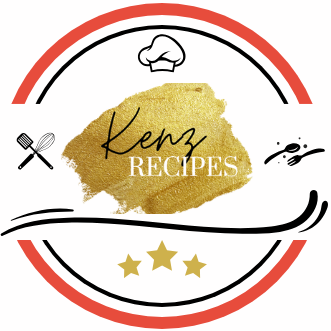
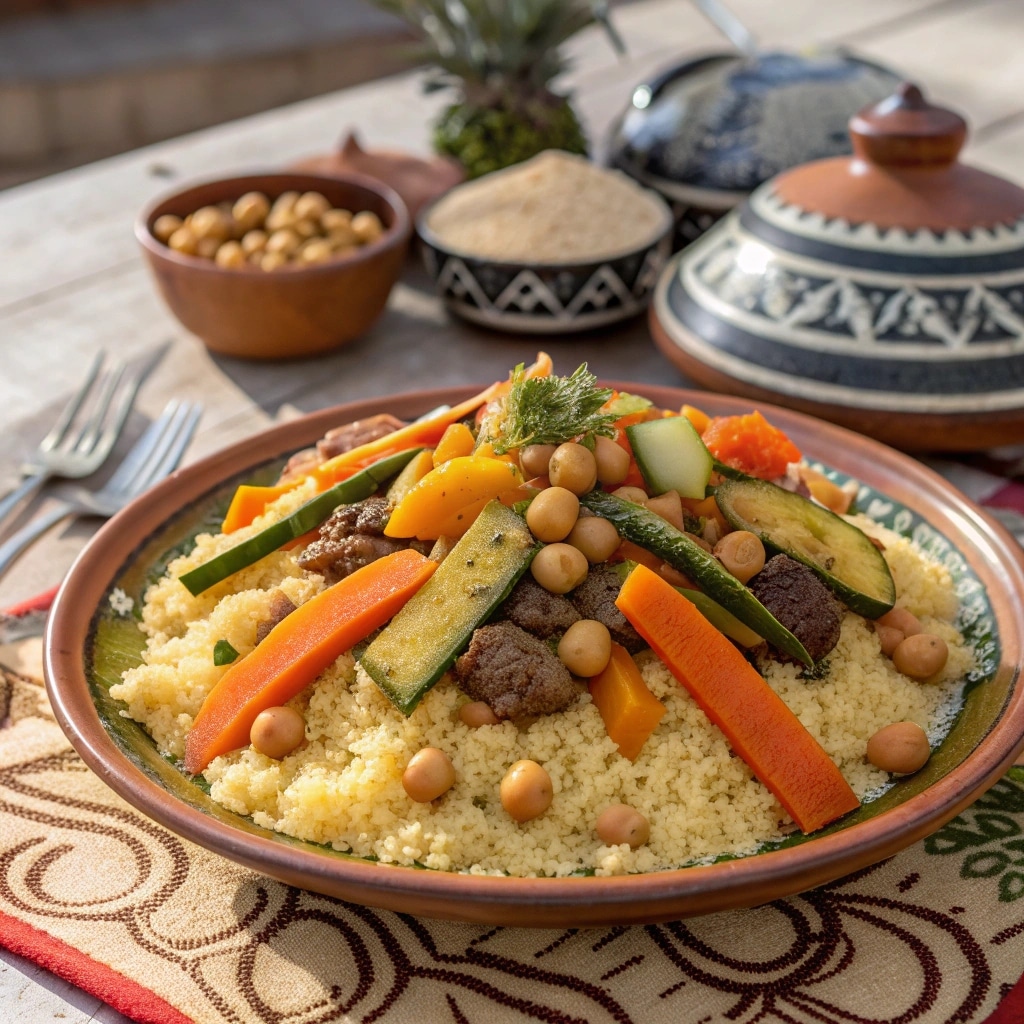
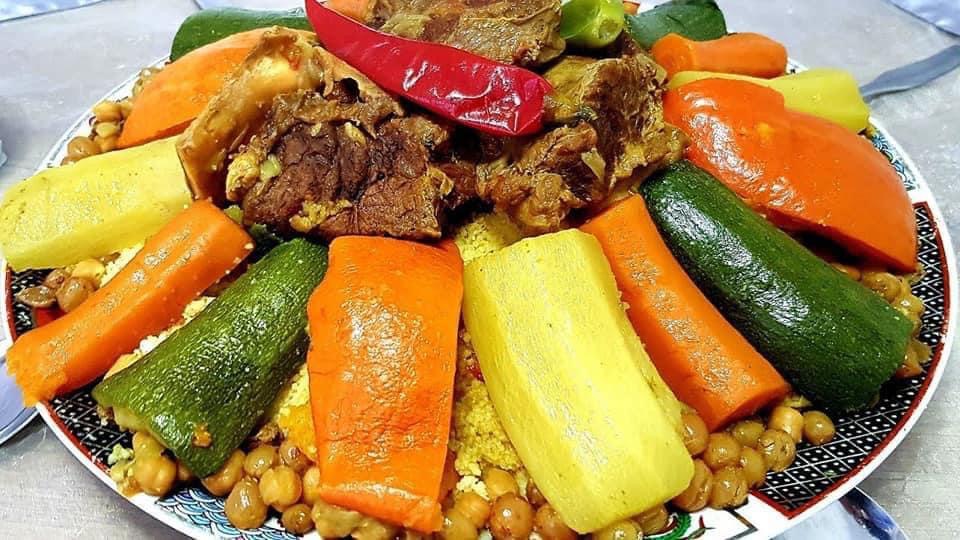
Amazing!!!!
You’re welcome
I love your recipes!
Aww, thank you so much! I’m so glad you’re enjoying the recipes 💛 More deliciousness coming your way!